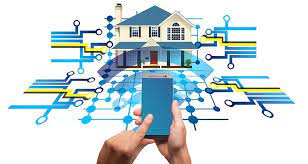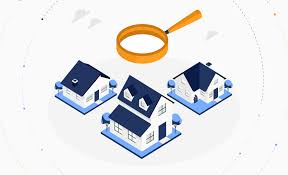For tenants, the ability to submit maintenance requests digitally offers several benefits. They can report issues at any time, day or night, eliminating the need to wait for business hours to make a phone call. With the option to add photos or additional details, tenants can provide more comprehensive information about the problem, helping building owners better understand the issue upfront.
Buildng owners can utilize project management systems to manage and track maintenance requests efficiently. Digital platforms allow homeowners to follow up on submitted requests, assign tasks to various vendors or contractors, and track the progress of repairs in real time. This streamlined process ensures that maintenance issues are addressed promptly and effectively, leading to increased tenant satisfaction. This is where a selected tool, homeowners can also ensure that maintenance tasks are completed within set timeframes, helping to maintain smooth operations.

A simplified property management solution tailored for mobile use is key to productivity. The interface should be easy to use and work well on different devices. Property managers can easily take care of important tasks, like talking to tenants, collecting rent, managing maintenance requests, and accessing property information, just by using their mobile phones. They can also use dynamic QR codes to streamline processes, such as granting tenants quick access to payment portals, maintenance request forms, or property-specific documents.
Security is another crucial aspect. Property managers deal with sensitive information, and a secure mobile property management solution ensures that data is protected from unauthorised access and breaches. This gives them the confidence to handle important business matters without compromising the safety of their and their client's data.

Tenant communication is now more critical than ever, and it has emerged as one of the top priorities for landlords and property managers. Efficient, consistent, and professional communication is pivotal in enhancing responsiveness and service quality, particularly in light of challenges posed by eviction moratoriums and tenant rent payment difficulties.
One piece of technology for communication between landlord and tenant is a mission critical approach without smart phones.
This way delays or no response can be verified for record keeping. This accessibility ensures that important messages and updates reach tenants promptly, increasing the likelihood of a swift response to critical matters.

Automatically records rent payments, generates reports, and allows landlords to collect rent online
Everything else falls in place.
The list is the following in order.
Rent collection: Tech setup automatically collect rent.
Maintenance requests: Automated to track and handle maintenance requests.
Reporting: Generate reports on income, expenses, and other metrics.
Communication: Easy way to communicate with tenants.

Investing in turnkey real estate means buying properties that have already been completely remodeled, leased, and managed by a seasoned business, enabling investors to make money without having to handle the day-to-day operations that come with property management. Given that people frequently juggle several obligations and lack the time or knowledge to maintain properties individually, the turnkey approach works effectively in today's market. This strategy gives novice real estate investors a lower-risk method to get involved while giving seasoned investors a chance to expand their portfolios more effectively. For both parties, turnkey properties are an effective way to increase real estate wealth without the typical obstacles.

Artificial Intelligence (AI), Big Data, Virtual Reality (VR), the Internet of Things (IoT), automated property management and maintenance, and
many more are noteworthy developments in real estate technology. They present a brand-new method for handling real estate cases.
Some of the features are
Virtual Reality: Step Inside Without Stepping Outside.
Artificial Intelligence: Analyzing, Synthesizing, and Predicting.
Online Valuation Tools: Insights at the Click of a Button.
Blockchain: Building Trust Through Transparency.
Big Data and Analytics: Informed Decision-Making.
Real estate has come a long way from its conventional roots, thanks to the huge gains we’ve made in technology. The market is becoming more dynamic and accessible than ever before. Adopting blockchain, AI, and virtual reality technologies is a smart move if you want to be successful in real estate investing in the future. Use these resources to gain insights and make better decisions that will shape your investment journey in the future.

Two new real estate industry toolkits.
Virtual reality and augmented reality.
The technology that overlays digital pictures on top of the real world is called augmented reality. For example, adding a desk or artwork to a room, a wraparound porch to a house, or a pool to a yard can all assist prospective homeowners
make better judgments.
The same is true with virtual reality, which is increasingly featured on the promotional pages of real estate professionals.

Artificial Intelligence options consisting of tools are now expanding in the real estate industry. They are from helping real estate professionals from listing copy, emails to clients, social media posts and more features.
While some market players such as ChaptGT, Microsoft Copilot and Google Gemini required registration and cost for premium services, usually with tiered pricing for advanced features.
They all start with free options and then premium kicks in with payments enabling patience for the real estate professionals to analyze well.

Virtual reality is also quite a famous real estate technology trend, which makes exploring properties without going to site to site. Virtual reality helps provide potential clients with a virtual or digital tour of the property remotely. With the deployment of virtual reality, the real estate industry has entered the metaverse of technology.
Now, your clients can visit the property from sitting anywhere with the help of virtual tours. The need for more sustainable and advanced options leads to increased acceptance of virtual reality, helping sellers and buyers make deals without in-person meetings.

Commercial real estate companies continue to identify opportunities to leverage technology and automation to increase sector efficiency and lower costs.
GenAI can support property operations, acquisition strategy and portfolio planning in ways that could change how commercial real estate companies do business.
A long-term strategic vision for GenAI that can evolve and address the need for safe, responsible and ethical AI use will be essential.
